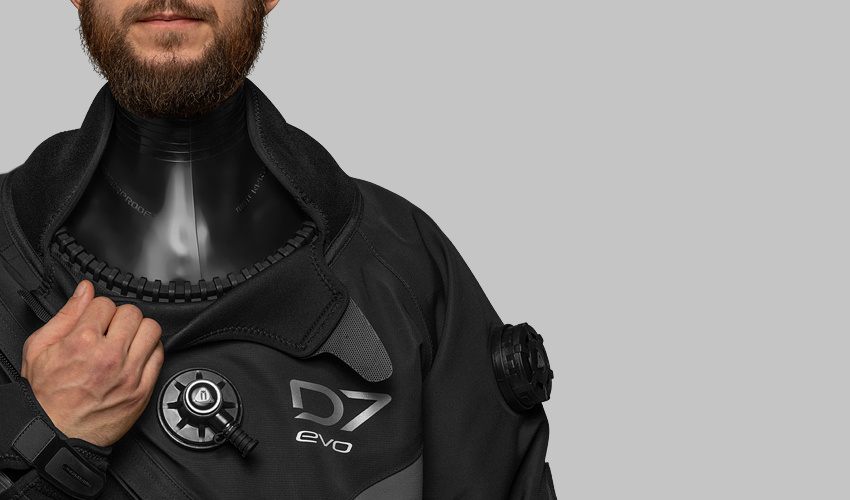Beyond Warmth: Why Dive a Drysuit?
Posted by Dive Master: William Taylor on on Oct 14th 2024
While keeping divers warm in frigid waters is undoubtedly the most common reason to dive a drysuit, there are several other compelling advantages that make them a popular choice for many underwater explorers. Let's delve into some of the key reasons why divers opt for drysuits beyond their thermal benefits.
Protection from Hazards:
Drysuits provide a robust barrier against harmful chemicals and pollutants that may be present in certain dive sites. This is particularly important in areas with industrial activities or contaminated waters. Additionally, they can offer protection against dangerous marine creatures like jellyfish or sea urchins, reducing the risk of painful stings or punctures.
Versatility and Accessibility:
With a drysuit, divers can enjoy their underwater adventures throughout the year, regardless of water temperature. This opens up opportunities to explore diverse dive sites and experience different marine ecosystems. Furthermore, drysuits are generally more accessible to divers with physical limitations or sensitivities, providing a comfortable and safe diving experience for individuals who might struggle in wetsuits due to cold or other factors.

Enhanced Comfort and Mobility:
Drysuits can be customized to fit individual body shapes and preferences, ensuring a comfortable and secure seal, preventing water ingress and maximizing mobility. Diving in a drysuit eliminates the discomfort of cold, wet skin, allowing divers to stay warm and dry throughout their dives, enhancing their overall enjoyment and comfort.
Photography and Videography:
Drysuits provide greater stability in the water, making them ideal for underwater photographers and videographers. This allows for more precise framing and control over camera movements. Additionally, drysuits can protect delicate camera equipment from the elements and accidental damage, ensuring that divers can capture stunning underwater images and videos.
Environmental Impact:
By using drysuits, divers can reduce their reliance on neoprene wetsuits, which are derived from petroleum-based materials. This can contribute to a more sustainable and environmentally friendly approach to diving.
Specific Applications:
Drysuits are essential for technical diving, including deep dives, cave diving, and wreck penetration. They provide the necessary protection and thermal insulation for these challenging environments. Additionally, drysuits are commonly used in commercial diving applications, such as underwater construction, inspection, and salvage operations. They offer the durability, protection, and functionality required for these demanding tasks.
Personal Preference and Adventure:
For some divers, the challenge and adventure of diving in a drysuit are part of the appeal. It can be a rewarding experience to conquer new depths and explore diverse environments. Moreover, mastering the intricacies of a drysuit can provide a sense of accomplishment and confidence, opening up new diving opportunities and enhancing a diver's overall experience.
In conclusion, while warmth is a significant benefit of diving a drysuit, it's far from the only reason to consider this option. Drysuits offer a range of advantages, including protection, versatility, comfort, and enhanced performance. Whether you're a recreational diver seeking new adventures or a professional diver working in demanding environments, a drysuit can provide the tools and protection you need to explore the underwater world safely and comfortably.
If you have any questions about drysuits, call our pros at (888) SCUBA LA
Wanna purchase your own? We offer a FREE drysuit course and FREE shipping with every drysuit purchase here.

